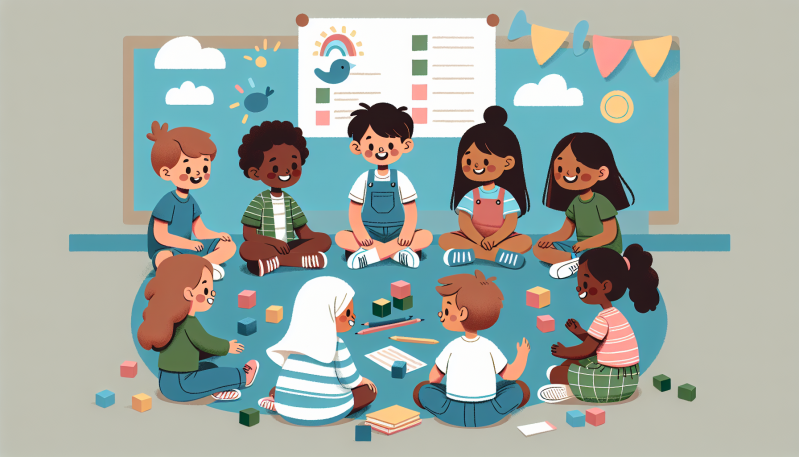Amid the hustle of curriculum schedules, academic assessments, and the general buzz of school life, it’s vital for educators, parents, and policy makers alike to turn their focus towards a less tangible, yet profoundly impactful aspect of student development: Emotional Intelligence (EI). Emotional Intelligence is the cornerstone that can build a healthier, more inclusive, and kinder school environment, where children not just excel academically but also thrive emotionally and socially.
The Importance of Emotional Intelligence in Education
Emotional Intelligence, at its core, is the ability to be aware of, control, and express one’s emotions, and to handle interpersonal relationships judiciously and empathetically. In a school setting, EI is the balm that soothes the pressures of academic rigor, the bridge that connects diverse student populations, and the lens through which one can view the challenges of the world with kindness and understanding.
Developing EI is essential from a young age as it lays the foundation for good mental health. When children learn to manage their emotions, they are better equipped to navigate stress, leading to fewer instances of mental health crises. It also fosters an environment of kindness; a high EI allows children to empathize with their peers, reducing instances of bullying and creating a more inclusive atmosphere.
Embracing Emotional Intelligence in Schools
The implementation of EI-centric programs within school curricula can be multifaceted. Schools have an immense opportunity to embed emotional intelligence in daily practices. Morning meetings, reflective journaling, and role-playing exercises can become tools to teach students about recognizing and managing their emotions. Programs such as Social and Emotional Learning (SEL) have been successful in integrating these practices into the school day, showing remarkable results in improving students’ empathy, social behavior, and even academic performance.
Furthermore, through group activities and discussions centered around diversity, equity, and inclusion (DEI), students can learn valuable lessons about respect, acceptance, and the richness of different cultures. This not only combats loneliness and isolation by fostering connections among students of varied backgrounds but also prepares them to be global citizens in a diverse world.
Impacts of Emotional Intelligence Programs
Studies have shown that schools with comprehensive SEL programs report a decline in behavior issues, better academic results, and improved attitudes about themselves, others, and school. These benefits extend beyond school walls, as emotionally intelligent children typically transition into adulthood with better mental health, stronger relationships, and higher job performance.
Tips for Parents and Educators
Supporting the growth of emotional intelligence should be a collaborative effort between home and school. Parents can continue the conversation by discussing feelings openly, encouraging empathy through family community service, and modeling EI in their interactions. Educators can promote EI by creating a classroom culture where students feel safe to express their emotions, integrating cooperative learning, and providing feedback that focuses not only on academic success but also on emotional growth.
In Conclusion
As society becomes increasingly aware of the importance of mental health and inclusive practices, it is clear that cultivating emotional intelligence in schools is not just a trend but a necessity. By implementing EI programs and practices within our schools and homes, we are paving the way for a generation of emotionally healthy, kind, and conscientious individuals. So let us embrace this pathway to a healthier school culture, where every child is equipped to face the world not just with a sharp mind, but also with a kind heart and an open spirit.



